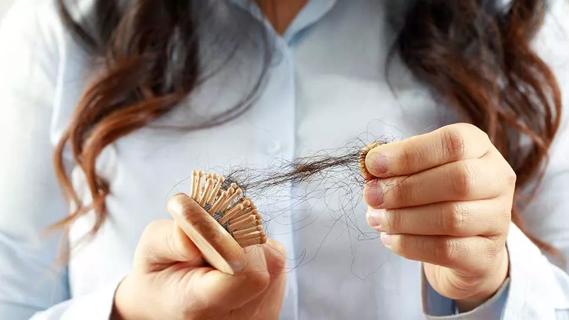Learn how parathyroid disease is related to calcium, vitamin D and kidney stones

You’ve probably heard about calcium and vitamin D and your need for these crucial nutrients — as well as the fact that most of us don’t get enough of them.
Advertisement
Cleveland Clinic is a non-profit academic medical center. Advertising on our site helps support our mission. We do not endorse non-Cleveland Clinic products or services. Policy
But what doesn’t make headlines is the parathyroid, the four little glands in your neck that are tied closely to both calcium and vitamin D. When your parathyroid glands don’t work properly, your calcium levels get out of whack, which can lead to longer-term problems such as kidney stones and osteoporosis.
Fortunately, parathyroid disease — particularly the most common form, hyperparathyroidism — is easy to diagnose. Endocrinologist Leila Khan, MD, clears up common misconceptions and covers the basics of finding and treating this condition.
The parathyroid and thyroid are commonly confused because they sound the same and are located close together in your neck. However, the parathyroid has its own distinct job.
The parathyroid hormone (PTH) keeps calcium in your bloodstream in check. If you have an abnormal growth on one or more of your parathyroid glands that overproduces PTH, too much calcium can build up in your blood and can sometimes reach unsafe levels. That’s one cause of hyperparathyroidism. But the most common causes of hyperparathyroidism are vitamin D deficiency, calcium deficiency and chronic kidney disease.
It might sound strange that calcium deficiency can cause your body to produce too much PTH, but that’s exactly what can happen in hyperparathyroidism. When your body is getting too little calcium, your parathyroid glands are signaled to produce excess PTH to boost your calcium levels by improving absorption of calcium in your gut.
“I have a lot of patients ask me how much calcium to take daily to avoid this,” says Dr. Khan. “Most adults need somewhere between 1,200 and 1,500 mg per day, and if you can’t meet those needs through diet, supplementation is necessary. Use the National Osteoporosis Foundation’s calcium calculator to calculate whether or not you’re getting enough calcium in your diet.”
Vitamin D is a similar story. Because vitamin D helps you absorb calcium in your gut, the two are linked. Getting too little vitamin D can cause you to absorb too little calcium, which leads to parathyroid problems. Supplements can help, and most adults can take 1,000 international units of vitamin D (D3 is the best option) without concerns.
“At some point, especially if you have symptoms related to calcium deficiency, work with your doctor to determine their needs and how to meet them,” says Dr. Khan.
Advertisement
Most people with primary parathyroid disease — caused by excessive enlargement or abnormal growth of parathyroid glands — show no symptoms. In fact, symptoms don’t usually trigger a diagnosis; basic blood testing during a regular checkup does. If identified, it can help prevent kidney stones and bone fragility.
“The first thing you want to find out is what your blood calcium is,” says Dr. Khan. “If it’s increased, you start digging for the cause.”
Initial testing includes checking for PTH, calcium values and vitamin D levels. The three tests together are often enough for diagnosing primary hyperparathyroidism, which typically occurs in people after age 50, although it can appear earlier. Once the condition is confirmed, your doctor may advise you to get a special kind of X-ray to see if your bones are weaker than normal. Plus, you might get checked for kidney stones.
The good news is because parathyroid disease is easy to find, you can treat it and avoid long-term problems such as kidney stones, osteoporosis and osteopenia. If primary hyperparathyroidism is identified, surgery is usually the next step.
Removing your abnormal parathyroid gland or glands can essentially cure the problem in almost all cases. Removing one or more of your glands — and typically leaving part or all of a healthy gland to keep regulating calcium — can protect your body from kidney stones and result in marked improvement in bone strength for the next several years.
“In a good surgeon’s hands, the risk of complications is minimal,” says Dr. Khan. “The benefits are highly positive. For patients who have stone disease, for example, surgery is marvelous. You’ve just cured them and hopefully, they don’t have any further occurrences.” Osteoporosis can reverse and there can also sometimes be improvement in energy and mind fogginess, as well.
Advertisement
Learn more about our editorial process.
Advertisement

Hypothyroidism is underactivity of your thyroid gland, while hyperthyroidism is overactivity — but both conditions need treatment

While it’s not medically recognized that our adrenal glands can ‘tire out,’ adrenal disorders are a very real thing

These chemicals, found in products like shampoo, shaving cream and processed foods, may affect your health

Check the plastic and personal care products in your home for these hormone-disrupting chemicals

No diet can cure hypothyroidism or hyperthyroidism, but some foods and supplements can cause trouble

Only take supplements recommended by your healthcare provider — others can worsen your condition

PFAS chemicals may make life easier — but they aren’t always so easy on the human body

The endocrine gland in charge of hormone production may be causing your hair to shed or stop growing

Wearing a scarf, adjusting your outdoor activities and following your asthma treatment plan can help limit breathing problems

Your diet in the weeks, days and hours ahead of your race can power you to the finish line

When someone guilt trips you, they’re using emotionally manipulative behavior to try to get you to act a certain way